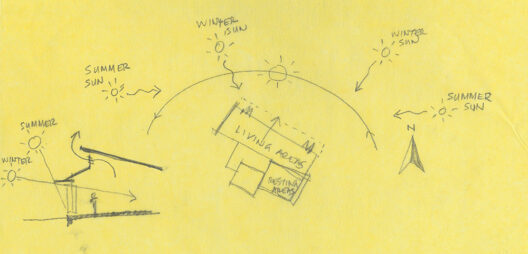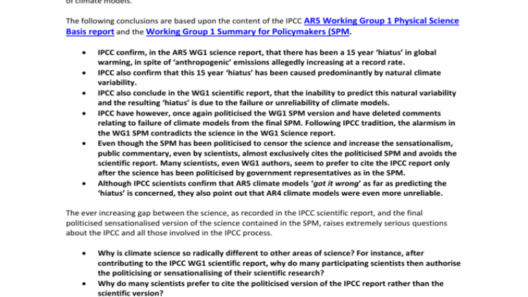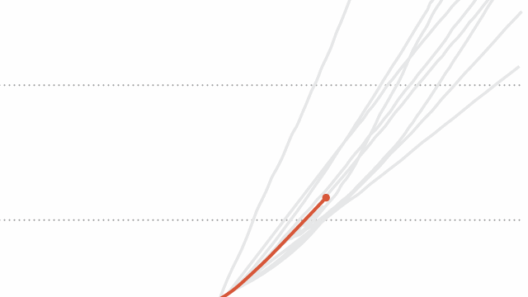The conversation surrounding global warming has taken on the proportions of a hydra, with each piece of misinformation that gets debunked seemingly giving rise to two more. This discourse has been rife with confusion, particularly with assertions suggesting that the United Nations (UN) admitted to global warming being orchestrated as a “scam.” Such claims conjure the image of shadowy figures manipulating data behind closed doors, but reality presents a far more complex and nuanced tapestry.
To dissect the claims of deceit, it is imperative to first comprehend the structural landscape in which climate science operates. The UN, through its Intergovernmental Panel on Climate Change (IPCC), has faithfully synthesized global research on climate change to inform policy decisions aimed at mitigating its most dire consequences. Here lies the crux of the matter: the IPCC does not produce original climate research, but rather compiles and assesses the findings of thousands of studies conducted by climate scientists from numerous disciplines and countries. This aggregation of knowledge forms a bedrock upon which global climate policy stands, not as a fortress of deception but rather as a citadel of empirical data.
When scrutinizing accusations of a ‘scam,’ one must recognize the intricacies of data interpretation and presentation. Mechanisms of climate change are not only complex; they are inherently uncertain. Such ambiguity can be exploited, twisted, and contorted to fit various narratives. This is akin to interpreting a Rorschach test—wherein each individual sees something unique, influenced by personal biases and experiences. Moreover, the societal hunger for sensationalism means that environmental data may be misconstrued or taken out of context, leading to the erroneous belief that the scientific community is engaged in some nefarious plot.
In their investigations, platforms like Snopes painstakingly debunk these fallacies, shining a much-needed light into the murky waters of misinformation. By illuminating the myths surrounding statements purportedly made by UN officials or documents, they clarify the realities of what climate scientists are actually saying. A pivotal example is the misinterpretation of meaningful scientific discourse, where nuanced guidance on climate policy is misconstrued as an admission of deceit. Such intricacies must be disentangled carefully to avoid the malignant spread of falsehoods.
Theories surrounding climate change often face skepticism, and it is vital to recognize that healthy skepticism forms the bedrock of scientific inquiry. However, when skepticism devolves into cynicism, it transforms into a barrier to action. This is particularly crucial in the context of global warming, where action is imperative. The metaphor of a ship navigating treacherous waters is fitting here: the navigational charts are crafted from years of painstaking research, yet some would rather believe a phantom version of reality that suggests the seas are calm when, in truth, a tempest brews beneath the surface.
One potent driver of such misinformation is the interaction between vested interests and public perception. Fossil fuel companies, for instance, have historically engaged in campaigns designed to sow doubt regarding climate science, reminiscent of the tactics first employed by the tobacco industry to discredit health research. The result is a skewed perception that questions the integrity of not just climate scientists but also institutions like the UN, which advocate for immediate action based on the wealth of supporting evidence.
Furthermore, the digital age has amplified this issue dramatically. In a world where information is disseminated at breakneck speed through social media channels, half-truths and sensational headlines proliferate, spreading like wildfire. Herein lies the challenge: how can a society grounded in reason sift through the cacophony of noise and discern the genuine signal of authentic scientific consensus? The role of fact-checking organizations has thus become paramount, acting as heralds of clarity amid the fog of confusion.
Importantly, even as the debate continues to unfold, the consensus within the scientific community regarding the anthropogenic effects of climate change remains robust. Relying on data collected over decades adds to the imperative of taking action now, as observable trends in climate extremes become increasingly alarming. This extensive body of evidence is not merely a statistical abstraction; it is a clarion call for accountability and transformative change.
As we immerse ourselves in this complex discussion, we must resist the siren songs of misinformation that seek to sidetrack our collective response to climate change. To yield to these false narratives is to disregard the deeply interconnected web of life on Earth that is currently under siege. This interconnectedness serves as a reminder of our shared responsibility; it is a collective plight that necessitates collective action, not division.
In summary, claims that the UN has admitted to global warming being a ‘scam’ do not hold water when scrutinized under the lens of thorough investigation. Instead, they reveal gaps in understanding and a lack of critical engagement with scientific discourse. The truth remains that climate change is one of the most significant challenges humanity faces today. As we continue to grapple with this crucial issue, embracing accurate information and factual discussions will empower society to act decisively and responsibly. In this shared journey, we must foster understanding rather than discord, illuminating both the path ahead and the urgency of our action.








